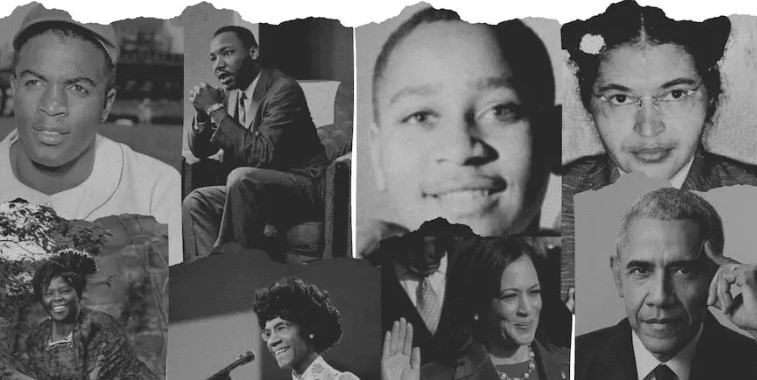In recent times, the teaching of Black history in American schools has come under intense scrutiny and faced significant challenges. From Florida’s new teaching standards to Texas banning critical race theory, the landscape of education has been reshaped, sparking debate and concern. While some argue these changes protect White students from feelings of guilt or indoctrination, Black parents are worried that their children are missing out on crucial aspects of their history and identity. As a result, many are taking matters into their own hands, seeking supplementary education through extra classes, textbooks, and at-home lessons. This article delves deep into this issue, exploring the evolving landscape of Black history education, the efforts of dedicated parents and organizations, and the lasting impact on future generations.

The Florida Controversy
The state of Florida has been at the center of the debate over Black history education. New standards introduced in the state require teachers to suggest that enslaved individuals may have benefited from skills learned during their enslavement. Even more controversially, the state banned the Advanced Placement class on African American history, claiming it “lacks educational value.” These changes have ignited a national conversation about the importance of comprehensive Black history education.
The Story of Akil King
Akil King, a concerned parent in Florida, found himself searching for alternative ways to ensure his 16-year-old daughter, Abyssinia, received a well-rounded education. Drawing from his own experience of taking a Black history course in college, which bolstered his self-esteem, King wanted Abyssinia to have a similar opportunity. He enrolled her in a 10-week summer course that delved into topics such as African kingdoms and the history of the Black Panthers.
Abyssinia shared her excitement about the course, emphasizing the importance of understanding the greatness of ancient African kingdoms, their rich civilizations, and their contributions to culture. Her thirst for knowledge exemplifies the hunger for comprehensive Black history education among young learners.
Supplementary Education: A Long-standing Tradition
The pursuit of supplementary education outside the public school system is not a new phenomenon among Black parents. For generations, they have turned to various sources, including churches, civic organizations, and fraternal groups, to provide the vital lessons often missing from mainstream curricula. LaGarrett J. King, an associate professor of social studies education at the University of Buffalo, highlights the historical context of this practice, emphasizing the Black community’s understanding that public school systems, primarily led by White educators, would not adequately teach their history.
The Black History Project: Empowering Future Generations
In response to the changing landscape of Black history education, Kristin Fulwylie Thomas founded the Black History Project in 2015. A former political organizer, she made the decision to work full-time on this nonprofit initiative after Florida’s educational standards began shifting. Thomas’s aim was to address the dilution of Black history in school curricula and ensure that young Black individuals could access empowering and comprehensive knowledge about their heritage.
The Black History Project curriculum covers a broad spectrum of topics, from African history to American slavery, the crack epidemic, over-policing, and the Black Lives Matter movement. Thomas initially hired one teacher to deliver the course to a single group of students in the Orlando area. However, as interest in the project surged, Thomas expanded its reach and began training teachers across the state to bring the curriculum to churches, youth groups, and after-school programs.
Thomas’s initiative now collaborates with multiple teachers across Florida, offering these essential lessons to a growing number of young learners. By doing so, she aims to counteract the narrative that dilutes Black history and empower a new generation with the knowledge and understanding they deserve.
Carl Buford’s Perspective
Carl Buford, a Black parent, shares his perspective on the necessity of supplementary education for his 3- and 4-year-old children. While acknowledging their young age, he recognizes the importance of preparing them for the gaps in the school curriculum. Growing up in Florida, Buford experienced firsthand the limited education he received about racially motivated massacres in places like Rosewood in 1923 or Ocoee in 1920. He believes that it is his responsibility as a parent to ensure his children are well-informed about their history and heritage.
He refers to the additional classes and lessons as an “investment” in his children’s education and future, recognizing that they are just as vital as the hours spent in traditional classrooms. The effort to supplement their education, Buford contends, is akin to an “additional tax on Black Floridians.”
Keiawnna Pitts: Teaching “Lift Every Voice and Sing”
Keiawnna Pitts, a Black parent from Round Rock, Texas, took proactive steps to supplement her child’s education. When her second-grader learned the Pledge of Allegiance at school, she decided to teach her “Lift Every Voice and Sing,” known as the Black national anthem. Recognizing the gaps in the school curriculum, Pitts also invested in supplementary textbooks like “Black History 365” to ensure her child received a comprehensive Black history education.
Pitts’s proactive approach underscores the determination of many Black parents to fill the educational void left by shifting curricula. With changes in educational standards and curricula in many states, parents like Pitts view supplementing their children’s education as a necessity.
Black History 365: Bridging the Gap
Black History 365, an Arlington, Texas-based company, has been at the forefront of providing supplementary education materials to bridge the gap in Black history education. Founded by Walter Milton Jr. in 2018, the publishing house distributes textbooks that focus on comprehensive Black history. While the books are in use in 250 schools across the nation, individual parents seeking supplementary education materials have also shown significant interest.
Walter Milton Jr. recalls his own educational experience when Black history lessons began with slavery, ignoring the rich history of African kings and queens. The frustration he felt as a student motivated him to create a history curriculum that would impact the world positively.
Social Media as a Tool for Education
In the age of social media, some parents have turned to platforms like TikTok to reach young learners. Ernest Crim III, a former social science teacher, started posting history lessons on TikTok during the pandemic. His goal was to make learning engaging and accessible for today’s tech-savvy youth.
Under the moniker “your favorite Black history teacher,” Crim has gained a substantial following on TikTok. His videos covering topics such as the founder of Red Lobster’s refusal to comply with Jim Crow laws have garnered millions of views. Many viewers have expressed that Crim’s short video lessons have taught them more than they learned in 12 years of formal schooling.
Jamarah Amani’s Search for Inclusive Schools
Jamarah Amani, a parent in North Miami, sought schools with Black teachers in leadership positions when transitioning her children from homeschooling to public education. Her hope was to find schools with strong Black history programs. However, she faced challenges in finding such institutions.
Amani believes that comprehensive Black history education is essential for all children, not just Black students. Her concerns about the lack of inclusive education in Florida have led her to consider relocating to a more inclusive state, although, for now, she supplements her children’s education with books and films at home.
Freedom School Camp in Mississippi
The Two Mississippi Museums, located in Jackson, Mississippi, hosted the second annual two-week Freedom School Camp during the summer. This program aimed to educate students about key historic sites, including the home of civil rights leader Medgar Evers. The program’s manager, Drew Gardner, noted a growing demand for the camp, with student enrollment increasing significantly year by year.
One parent, Latasha Holmes, enrolled her 12-year-old son, Braylan, in the camp to ensure he learned about Mississippi’s pivotal role in the civil rights movement. Braylan returned home with a newfound excitement for history and shared interesting nuggets of information, such as the proximity of Evers’s office to a local restaurant and notable Black authors he encountered at a book festival.
Conclusion
The battle for inclusive education in America, particularly in the realm of Black history, is ongoing and complex. As educational standards evolve and curricula change, Black parents and organizations are taking proactive steps to ensure that young learners receive comprehensive and empowering knowledge about their history and heritage.
Supplementary education, whether through extra classes, textbooks, at-home lessons, or social media, is becoming increasingly vital in bridging the educational gap. These efforts are a testament to the unwavering commitment of Black parents and educators to empower future generations with the understanding and pride that comes from knowing their history.
In the face of challenges and shifts in educational standards, the pursuit of inclusive education remains a fundamental aspiration—a commitment to ensuring that all children, regardless of their racial or ethnic background, have the opportunity to learn about the full tapestry of American history and culture.
